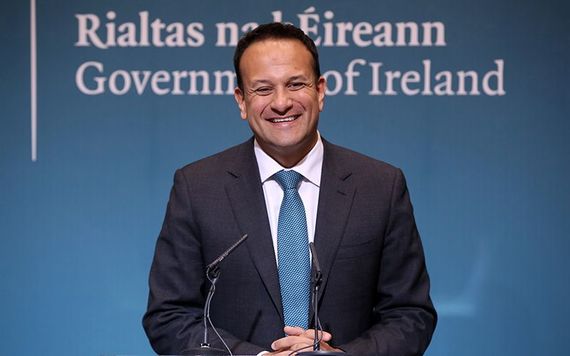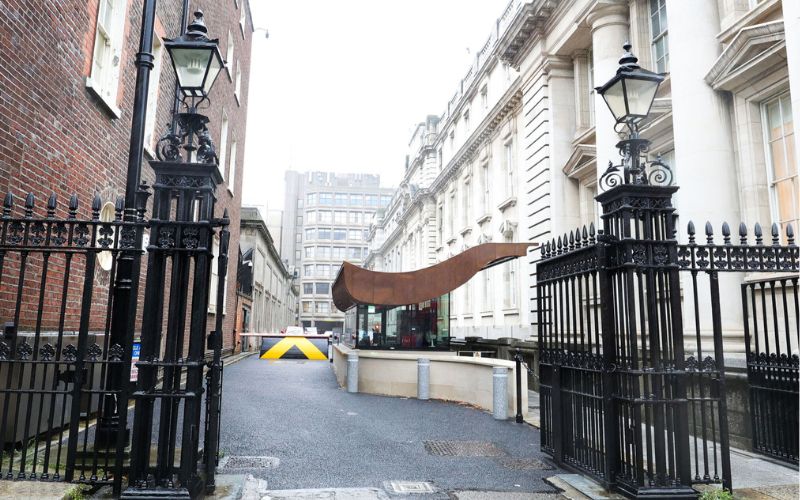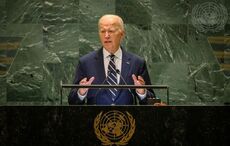Fianna Fail’s latest decision to withhold talks on the next general election until after the March 2019 Brexit deadline means that it is effectively staking the future of the present government on its ability to successfully steer the country through the Brexit negotiations.
After a summer of speculating whether Fianna Fail would bring the Fine Gael minority government down, Micheal Martin recently indicated that he would support the next budget and tacitly allow Leo Varadkar’s government to remain in power. Despite demands from Varadkar that Fianna Fail also agree to an election date sometime in the summer of 2020, Martin was unwilling to offer this concession, and instead indicated that he would wait until after Brexit is realized this March to make a decision. While this does give the government the freedom to navigate the Brexit negotiations without the looming threat of an immediate election, it keeps the pressure firmly on Fine Gael because it is now clear that Fianna Fail will measure the viability of the government against its performance during the crucial months ahead.
Fianna Fail’s surprise performance at the 2016 general election caused several pundits to declare the inevitability of the party's ultimate assumption of power. Its poll numbers soared in the months following the election, and it overtook Fine Gael as the country's most popular party for most of the remainder of 2016. The stabilization of the political climate, Enda Kenny’s replacement as Taoiseach with Leo Varadkar, and the affirmation of the abortion referendum all helped to improve the government's public image and consolidate support for Fine Gael, all at Fianna Fail’s expense. These caused the prospects of a general election to dim, though Fianna Fail’s need to continuously mind a resurgent Sinn Fein biting at its heels meant that election talks were never truly off the table.
Ireland's Taoiseach (Prime Minister) Leo Varadkar.
Fianna Fail still finds its prospects of overtaking Fine Gael as the largest party in the Dail just outside the edge of the plausible, though recent opinion polls indicate that it has both closed the gap with the largest party and has created significant space between it and Sinn Fein. But Leo Varadkar now faces his stiffest test as Taoiseach yet, and despite several key victories over the past year, his party’s relatively precarious position in power will depend on his ability to maintain the free movement of goods from Ireland to Britain and, perhaps most importantly, ensure that checkpoints are not placed on the border between the Republic and Northern Ireland.
Of course, much of this is outside Fine Gael’s control, and it will primarily depend on Theresa May’s own ability to secure a Brexit deal that is acceptable to the wide array of opinion in Brussels, London, Belfast, and Dublin, all while ensuring that her rebellious back benchers toe the line. This appears increasingly unlikely, and if the ultimate Brexit arrangement does not secure the Irish government's aforementioned objectives, it might provide Fianna Fail with enough political capital to push for a general election by the summer of next year.
In the event of a Brexit deal harmful to Ireland's interests, Fianna Fail would likely use the wave of public outcry to finally collapse the government, all while claiming only to be responding to the will of the people. That is the reason it is important to Fianna Fail for Martin not to promise a summer 2020 election date because that would give the present government time to untangle the real implications of Brexit but also a chance to withstand a potentially negative backlash against its performance and stabilize public opinion by the time the summer of 2020 arrives. Thus, by withholding agreement on a particular date, an election in mid-2019 remains a possibility, and that means Fianna Fail retains the opportunity to use the immediate public reaction to Brexit to its political advantage.
There is an inherent risk for Fianna Fail, however. If Theresa May successfully pushes her most recent proposal through Westminster, the economic status quo between Ireland and the UK (at least from Ireland’s perspective) would be preserved, amounting to a significant political victory for Varadkar. In the event that an election date is not scheduled for summer 2020, Fine Gael might seek to capitalize on its likely resulting boost at the polls and actually initiate a 2019 election itself, hoping to secure a stronger mandate in the Dail. This would, of course, be a demoralizing defeat for Fianna Fail, which might itself be enough to boost Sinn Fein ahead of the party and stoke internal calls for Martin's removal.
The outcome of the Brexit negotiations are yet to be realized, but it is clear that it will have a major economic and political impact on Ireland. All of the major actors in the Irish political scene recognize this, and both Fine Gael and Fianna Fail undoubtedly understand that the government's performance over the coming months will determine the long-term future of Ireland. Fianna Fail is thus not wrong to stake the future of the government on its ability to navigate this critical historical moment, and it now appears that Irish politics will remain on standby until it is clear in what way the UK's future relationship with the EU is arranged.
This article was submitted to the IrishCentral contributors network by a member of the global Irish community. To become an IrishCentral contributor click here.




Comments